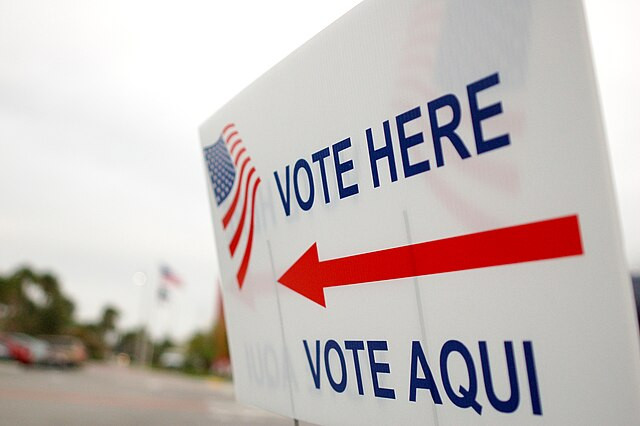A Georgia judge ruled on Monday that county election officials cannot delay or refuse to certify election results, delivering a blow to conservative efforts seeking to allow such actions based on fraud or error suspicions. The ruling comes as election integrity battles continue in the crucial battleground state ahead of the 2024 presidential election.
Fulton County Superior Court Judge Robert McBurney, in an 11-page decision, made it clear that the process of certifying election results in Georgia is a mandatory duty for local election officials. "Election superintendents in Georgia have a mandatory fixed obligation to certify election results," McBurney wrote. "No election superintendent may refuse to certify or abstain from certifying election results under any circumstance."
The case, brought by Julie Adams, a Republican member of the Fulton County Board of Registration and Elections, aimed to challenge the ministerial nature of election certification in the state. Adams, backed by legal representation from the conservative America First Policy Institute, argued that election board members should be able to refuse certification if they suspected fraud or error, but the court ruled firmly against this interpretation.
McBurney's ruling comes at a time when election certification has become a central issue in Georgia. Efforts to allow election officials to investigate and delay certification based on suspicions have been fueled by claims of widespread fraud in the 2020 election, though extensive reviews and audits of Georgia's results-including machine recounts and a full hand count-have found no evidence of significant fraud.
McBurney acknowledged that election officials are obligated to investigate any potential miscounts, but he stressed that such investigations do not justify delaying the certification process. "The concern about miscounts is not cause to delay or decline certification," McBurney wrote.
Adams, who had abstained from certifying results during the May primary election earlier this year, contended that her duties should involve discretion, allowing for investigations into possible fraud before certifying the results. However, the court ruled that the certification process is not discretionary but rather an essential administrative task that concludes the election.
"If election superintendents were, as Plaintiff urges, free to play investigator, prosecutor, jury, and judge and so-because of a unilateral determination of error or fraud-refuse to certify election results, Georgia voters would be silenced," McBurney added in his ruling. "Our Constitution and our Election Code do not allow for that to happen."
Georgia's election code mandates that county election results must be certified by a set deadline, which this year falls on November 12. The ruling ensures that local election boards cannot disrupt the certification process, which has historically been ministerial, not investigatory. McBurney's decision also touched on broader national debates surrounding election integrity, with Republicans in several states pursuing legal avenues to allow local officials to scrutinize and reject election outcomes.
The Democratic National Committee (DNC) and the Democratic Party of Georgia, both of which intervened in the case, hailed the ruling as a major victory for election integrity. "Election after election, in state after state, we have protected our elections from far-right Republicans trying to disrupt them, and Democrats remain ready to stand up and make sure every voter can cast their ballot knowing it will count," the DNC said in a joint statement. The organizations, backed by Vice President Kamala Harris's campaign, emphasized that the ruling affirms the legitimacy of the 2020 election and protects the process for future elections.
The decision provides a legal precedent as Georgia and other states prepare for the 2024 presidential election, where concerns over election certification processes may resurface. The case also highlights ongoing legal battles between state Democrats and conservative groups over new election policies adopted by Georgia's State Election Board. One such policy, currently under legal challenge, requires local election officials to conduct a "reasonable inquiry" into results before certification.
Adams had argued that she was denied access to key election documents during the May primary, a claim McBurney acknowledged by stating that Adams had the right to access relevant election information. However, the judge emphasized that any delay in receiving this information does not justify refusing to certify the results.
In a critical part of his ruling, McBurney reiterated that concerns over fraud or error can be pursued through legal challenges known as "election contests," which take place in open court. "The claims of fraud from one side are tested by the opposing side in that open court-rather than being silently 'adjudicated' by a superintendent outside the public space, resulting in votes being excluded from the final count without due process being afforded to those electors," McBurney wrote.






